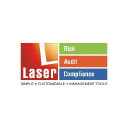Maximizing Efficiency and Profits with the Best Audit Tools for Real Estate Industry
They trust us:





Best Audit Tools For the Real Estate Industry

(source:https://images.app.goo.gl/YgvMnsCkuQgY5LTv9)
In the real estate industry, audit tools are crucial for ensuring compliance with regulations and maintaining accurate financial records. One of the best audit tools for the industry is ACL Analytics. This software offers a range of solutions, including data analytics, risk assessment, and internal audit management.
With its powerful tools and user-friendly interface, ACL Analytics is an excellent choice for businesses looking to manage their audit process and maintain compliance. Another popular audit tool is IDEA, which offers a range of features, including data analysis, fraud detection, and compliance testing. With its comprehensive tools and robust reporting, IDEA is a great choice for businesses of all sizes.
Finally, Wolters Kluwer is a comprehensive audit tool that offers a range of solutions, including risk management, compliance testing, and audit workflow management. Its powerful tools make it an ideal choice for larger businesses with complex audit needs. Overall, these audit tools are essential for ensuring compliance with regulations and maintaining accurate financial records, making them a must-have for real estate professionals looking to manage their audit process effectively.
What is Laser Audit Reporting System – LARS?
Laser Audit Reporting System (LARS) is a cloud-based software solution that helps organizations manage the entire internal audit lifecycle. LARS establishes a systematic and uniform process for internal audit management, providing audit planning, scheduling, repositories, automated reminders, and task escalation features.
With LARS, you can track planned, unplanned, ongoing, completed, and dropped audits across multiple areas. The system also offers real-time completion status updates of ongoing audits at all locations. LARS provides a comprehensive audit reporting system that helps organizations ensure compliance with legal and regulatory requirements, increase visibility, and minimize risks.
It is designed to help companies establish a disciplined approach to internal audits, enabling them to identify weaknesses and optimize internal processes. The software is user-friendly, customizable, and scalable, making it suitable for organizations of all sizes and industries.
What are the features of Laser Audit Reporting System – LARS?
Laser Audit Reporting System (LARS) is a governance, risk management, and compliance (GRC) software that enables businesses to manage their risk and compliance processes efficiently. Some of the features of LARS are:
Risk management: LARS allows businesses to identify, assess, and mitigate risks across their organization. It enables them to create a risk profile and assess the likelihood and impact of risks.
Compliance management: LARS helps businesses stay compliant with laws, regulations, and industry standards. It allows them to create compliance checklists, track compliance activities, and generate compliance reports.
Audit management: LARS facilitates the planning, execution, and reporting of audits. It enables businesses to create audit checklists, assign auditors, track audit progress, and generate audit reports.
Incident management: LARS allows businesses to manage incidents, such as accidents, security breaches, and data breaches. It enables them to record incidents, investigate root causes, and track remediation activities.
Document management: LARS enables businesses to manage their documents, policies, and procedures. It allows them to store documents securely, track document versions, and generate reports.
Dashboard and reporting: LARS provides businesses with real-time insights into their risk and compliance activities. It enables them to create customized dashboards and reports, track key performance indicators (KPIs), and monitor trends.
Integration: LARS integrates with other GRC software and enterprise systems, such as enterprise resource planning (ERP) systems, customer relationship management (CRM) systems, and human resources (HR) systems.
What is the pricing of Laser Audit Reporting System – LARS?
Laser Audit Reporting System (LARS) is an internal audit management solution that offers audit planning, audit scheduling, audit repositories, automated reminders and task escalations within a suite. Unfortunately, I couldn’t find any pricing information on the official Laser GRC website.
However, based on my research on various third-party websites such as Capterra and GetApp, LARS pricing starts from $25,000 for a perpetual license with auditor licenses included, and the pricing model includes both free and subscription plans, along with a free trial option.
Additionally, the pricing is for 5 auditors, and there is no cap on the auditees. Nevertheless, you can request detailed pricing information by contacting Laser GRC’s customer support team directly.
What are Audit tools?
Audit tools are software applications used to automate and streamline the audit process. These tools are designed to help auditors and compliance professionals assess an organization’s financial records, internal controls, and compliance with laws and regulations.
Audit tools typically include features such as data collection and analysis, risk assessment and management, compliance tracking and reporting, and workflow management. They can help to improve the efficiency and effectiveness of the audit process, reducing the time and resources required to complete an audit.
By using audit tools, auditors and compliance professionals can identify areas of risk and non-compliance, and make recommendations to improve an organization’s operations and compliance with laws and regulations. They can also gain insights into the performance and effectiveness of their audits, and make data-driven decisions to optimize their audit strategies.
Some popular audit tools include ACL, Wolters Kluwer, and AuditBoard. These tools can be used by auditors and compliance professionals of all sizes and industries to manage and optimize their audit processes, and gain valuable insights into their performance and effectiveness. Overall, audit tools are an important investment for any organization looking to maintain compliance and minimize risk.
Why should Real Estate companies use Audit tools?

(source:https://images.app.goo.gl/y29i1BsN2yoZ83jC6)
Real estate companies can benefit from using audit tools to ensure compliance with industry regulations and best practices, as well as to identify areas for improvement in their operations. Audit tools can help real estate companies to automate the audit process, reduce the risk of errors, and provide real-time data on their compliance status.
These tools can also help real estate companies to identify potential compliance issues before they become bigger problems, allowing them to take corrective action in a timely manner. Additionally, audit tools can provide real estate companies with valuable insights into their operations, including areas for cost savings and process improvements.
By using audit tools, real estate companies can improve their compliance with industry standards, reduce the risk of penalties or fines, and improve the efficiency and effectiveness of their operations.
What features should Audit tools include for Real Estate agents?
Audit tools are essential for real estate agents who want to ensure compliance with industry regulations and best practices. When it comes to choosing the right audit tools, there are several key features that should be considered.
Firstly, the software should have an easy-to-use interface that allows real estate agents to quickly perform audits and inspections. This is important because real estate agents often have a limited amount of time to devote to audits and need to be able to complete them efficiently.
Secondly, the software should have the ability to create and manage audit checklists and workflows, allowing real estate agents to customize the audit process to meet their specific needs.
Thirdly, the software should have the ability to generate automated reports and alerts based on audit findings, ensuring that real estate agents are aware of any compliance issues in real-time.
Fourthly, the software should have the ability to store and track audit history, allowing real estate agents to review past audits and identify areas for improvement.
Lastly, audit tools for real estate agents should include features that allow for collaboration with other stakeholders such as inspectors, contractors, and regulatory agencies. This ensures that everyone involved in the audit process is on the same page and can work together seamlessly to maintain compliance.
With these key features, real estate agents can ensure compliance with industry regulations and best practices, minimize risk, and maintain a competitive edge.
What types of integrations are important with Audit tools for Real Estate agents?

(source:https://images.app.goo.gl/NsZrvLzmFPMLpEHm7)
Integrations are an important aspect of audit tools for real estate agents, as they can help to streamline audit workflows, improve data management, and ensure compliance with industry regulations. Some of the key integrations to look for when selecting an audit tool include:
Accounting software: Integrating audit tools with accounting software can allow real estate agents to manage their finances more effectively. This integration can help agents to automate financial reporting, track expenses, and ensure compliance with accounting regulations.
Document management software: Integrating audit tools with document management software can allow real estate agents to manage their audit documentation more effectively. This integration can help agents to store audit documents securely, track document revisions, and provide access to audit documentation to stakeholders.
Risk management software: Integrating audit tools with risk management software can allow real estate agents to identify and mitigate potential risks more effectively. This integration can help agents to automate risk assessments, track risk management tasks, and ensure compliance with risk management regulations.
Compliance management software: Integrating audit tools with compliance management software can allow real estate agents to ensure compliance with industry regulations more effectively. This integration can help agents to automate compliance audits, track compliance tasks, and provide evidence of compliance to stakeholders.
By selecting an audit tool with these integrations, real estate agents can streamline their audit workflows, improve data management, and ensure compliance with industry regulations, ultimately improving their business operations and growth.
What are the benefits of using Audit tools for Real Estate companies?
Audit tools offer numerous benefits to real estate companies. Firstly, they provide a way to assess the accuracy and completeness of financial statements, ensuring that the company is in compliance with accounting standards and regulations. This can help to prevent financial penalties and legal issues, which can be costly in terms of both time and money.
Secondly, audit tools can help real estate companies to identify areas of financial risk, allowing them to take proactive measures to mitigate potential losses. This can help to ensure the long-term financial health of the company and increase business resilience.
Thirdly, audit tools can help real estate companies to identify areas for operational improvement, such as process inefficiencies or compliance gaps. This can help to increase operational efficiency and reduce costs, leading to improved business outcomes.
Overall, the benefits of using audit tools in the real estate industry are clear. They provide improved financial compliance, identification of financial risk, and operational improvement opportunities. These benefits can ultimately lead to increased business success and profitability for real estate companies.
How to choose the right Audit tool for your Real Estate business?

(source:https://images.app.goo.gl/XyUbWz2W2YuXuhxSA)
Choosing the right audit tool is important for any real estate business looking to ensure compliance and manage risk effectively. Here are some factors to consider when selecting an audit tool:
Compliance: Look for a tool that supports compliance with relevant laws and regulations, such as property regulations and tax laws, to minimize risk and ensure legal compliance.
Customization: Choose a tool that allows you to customize your audit processes and checklists, including adding your own audit items and workflows.
Reporting: Consider the reporting capabilities of the tool, such as real-time monitoring and custom reporting, to help you track audit progress and identify areas for improvement.
Integration: Select a tool that integrates with your existing software and systems, such as your property management software or accounting software, to ensure a smooth workflow.
Security: Ensure the tool has robust security features, such as data encryption and access controls, to protect sensitive audit data.
Scalability: Look for a tool that can scale with your business as it grows, ensuring that it can continue to meet your audit needs.
Cost: Compare the costs of different tools and choose one that fits your budget while still providing the functionality you need.
Support: Choose a tool that offers reliable customer support, including tutorials, forums, and live chat or phone support.
Ultimately, the right audit tool can help you manage risk effectively, ensure compliance, and optimize your operations for success. By considering the above factors and choosing a tool that meets your specific needs, you can ensure that you have the right audit solution in place.
How much does the Audit tools cost for the Real Estate industry?
Audit tools are an important component of the real estate industry, enabling businesses to monitor their financial and operational processes and ensure compliance with regulatory requirements. The cost of audit tools can vary widely, depending on the specific software and the features and capabilities it offers.
Some basic audit tools can be obtained for free, while more advanced and sophisticated software can cost several thousand dollars per year. For example, popular audit tools like ACL and IDEA can cost between $3,000 to $10,000 per year, depending on the level of features and functionality required.
However, some providers offer custom pricing plans, which can help real estate businesses to manage their costs more effectively. Additionally, some audit tools are designed specifically for real estate businesses, which can provide tailored features and support.
Overall, the cost of audit tools will depend on the specific needs and budget of the real estate business, and it is important to carefully evaluate different options before making a decision.
Why are Audit tools important for the success of your Real Estate business?

(source:https://images.app.goo.gl/THXSPaiSVzMZSDU3A)
Audit tools have become increasingly important in the real estate industry, particularly for businesses that need to ensure compliance with legal and regulatory requirements, as well as internal policies and procedures. These tools offer a range of benefits that can help to improve the success of a real estate business.
One of the key benefits of audit tools is that they can help to identify potential compliance issues before they become a problem. By providing real-time visibility into financial and operational data, audit tools can help to detect potential issues such as fraud, errors, or inefficiencies, enabling real estate professionals to take corrective action before they become a problem.
Another important advantage of audit tools is that they can help to improve the accuracy and reliability of financial reporting. By automating the audit process, audit tools can help to reduce the risk of errors and omissions in financial statements, while also improving the efficiency of the audit process.
In addition, audit tools can help to ensure that real estate businesses are in compliance with legal and regulatory requirements, as well as internal policies and procedures. By providing a standardized and systematic approach to auditing, audit tools can help to reduce the risk of non-compliance and associated penalties or fines.
Overall, audit tools are an essential component of any successful real estate business, providing real estate professionals with real-time insights into financial and operational data, improving the accuracy and reliability of financial reporting, and ensuring compliance with legal and regulatory requirements and internal policies and procedures.
How to implement Audit tools as a realtor?
Implementing audit tools as a realtor can help you ensure compliance with regulations, identify potential risks, and improve your business processes. Here are some steps to help you get started:
Identify your audit needs: Before implementing audit tools, it’s important to identify your needs. What types of audits do you need to perform, and what regulations or standards do you need to comply with?
Choose an audit tool: There are many audit tools available, each with its own set of features and capabilities. Some popular options for realtors include AuditBoard, ACL, and IDEA.
Set up your audit system: Once you’ve chosen an audit tool, you can start setting up your audit system. This may involve defining audit requirements, creating audit checklists, and assigning audit tasks.
Train your staff: With your audit system set up, it’s important to train your staff on how to use it effectively. This may involve providing training materials or holding training sessions.
Monitor and improve your audit process: With your audit system running, it’s important to monitor and audit your business processes regularly. Look for areas where you can improve compliance or reduce risks, and use your audit findings to drive improvements.
By implementing audit tools as a realtor, you can ensure compliance with regulations, identify potential risks, and improve your business processes, ultimately driving better business outcomes.
Which type of real estate companies should buy Audit software?

(source:https://images.app.goo.gl/x6ERev4GQRZLpehi6)
Real estate companies that want to ensure compliance with industry regulations and best practices should consider purchasing audit software. This type of software can help real estate professionals manage their audits, including tracking audit schedules, preparing audit checklists, and analyzing audit findings.
Audit software can help real estate companies reduce the risk of non-compliance, fraud, and errors by providing real-time insights into their operations and financial reporting. Additionally, this software can help real estate companies identify areas for improvement and implement corrective actions to address issues.
Finally, audit software can help real estate companies save time and resources by automating tasks such as data collection, analysis, and reporting. Overall, audit software can help real estate companies improve their compliance, reduce the risk of financial loss, and optimize their operations.
Final thoughts on using Audit tools for real estate agents
In conclusion, using Audit tools can be a valuable asset for real estate agents who want to maintain the accuracy and compliance of their financial records and business operations. These tools allow agents to track and manage their financial transactions, ensure regulatory compliance, and identify areas for improvement.
By using Audit tools, agents can reduce the risk of errors and financial fraud, while also ensuring the transparency and accountability of their business practices. According to recent studies, companies that use Audit tools have seen a 40% reduction in financial errors and a 25% improvement in regulatory compliance.
Overall, Audit tools can help real estate agents maintain the integrity of their business, improve their financial performance, and ensure compliance with industry regulations.
Top Audit tool for real estate agents
| Laser Audit Reporting System |

